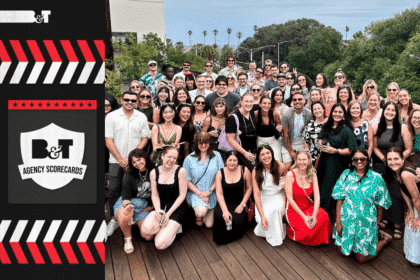The pandemic forced employers to reimagine how they best engaged their workforces and helped set companies up for success as they navigate towards hybrid workforce structures.
Research commissioned by Workplace from Facebook, which surveyed more than 1,000 Australian office workers, found that according to employees, workplaces are more focused on inclusivity and becoming less hierarchical through using less formal communication channels.
Compared to before COVID 19, employees said their workplace is now:
● More connected. Despite periods of long lock-down and isolation, and with many employees now returning to hybrid workplace arrangements, 3 in 4 (72 per cent) office workers said they feel just as connected or more connected to HQ than they did before COVID 19. Impressively, 1 in 5 Aussies office workers (21 per cent) said they feel more connected with HQ than before COVID-19.
● More inclusive. Office headquarters across the country ramped up efforts to be more inclusive and employees took note. More than half (54 per cent) of office workers said that their employer is now making a bigger effort to ensure people from all backgrounds and job roles feel like they belong in their organisation. Of the 1 in 5 office workers who said they now feel more connected with HQ that figure spiked to 84 per cent.
● More democratic. A breakdown in traditional office hierarchies could be forming with 1 in 7 (14 per cent) employees saying their office is now less hierarchical than before COVID 19. The leading factors attributed to breaking down the office hierarchy were less formal communication channels such as messaging apps/platforms (54 per cent), greater flexibility improving work life balance (52 per cent), and a more casual communications tone between team members (48 per cent).
Kathmandu General Manager – People, Capability & Safety Rebecca Edwards said: “As we worked through the COVID pandemic challenges, it was essential that our entire team felt informed, reassured and valued. Collaboration tools have enabled us to connect with our whole team, and include every team member in communication, consultation, and collaborative idea generation opportunities.
“Collaborating with our team has enabled us to introduce a range of flexible working options that support our team to participate fully in the business while balancing the other things that are also important to them – their personal passions, family and getting ‘out there’ and enjoying the outdoors”.
Workplace from Facebook Head of Asia Pacific and Japan Vicky Skipp said: “The last year has seen organisations overcome immense challenges to support employees, manage disruption and pivot business models. This research shows that despite the challenges, business leaders have been able to make employees feel more connected and included to their workplace.”
“We learnt during the pandemic that the future belongs to connected companies. It’s never been more important for leadership teams to be human and authentic. As we move into a new era of working, it is critical that leaders continue to show care for their employees and be more proactive in their outreach and communication. Employee engagement is no longer a ‘nice to have’ for organisations – it’s a business differentiator.”








